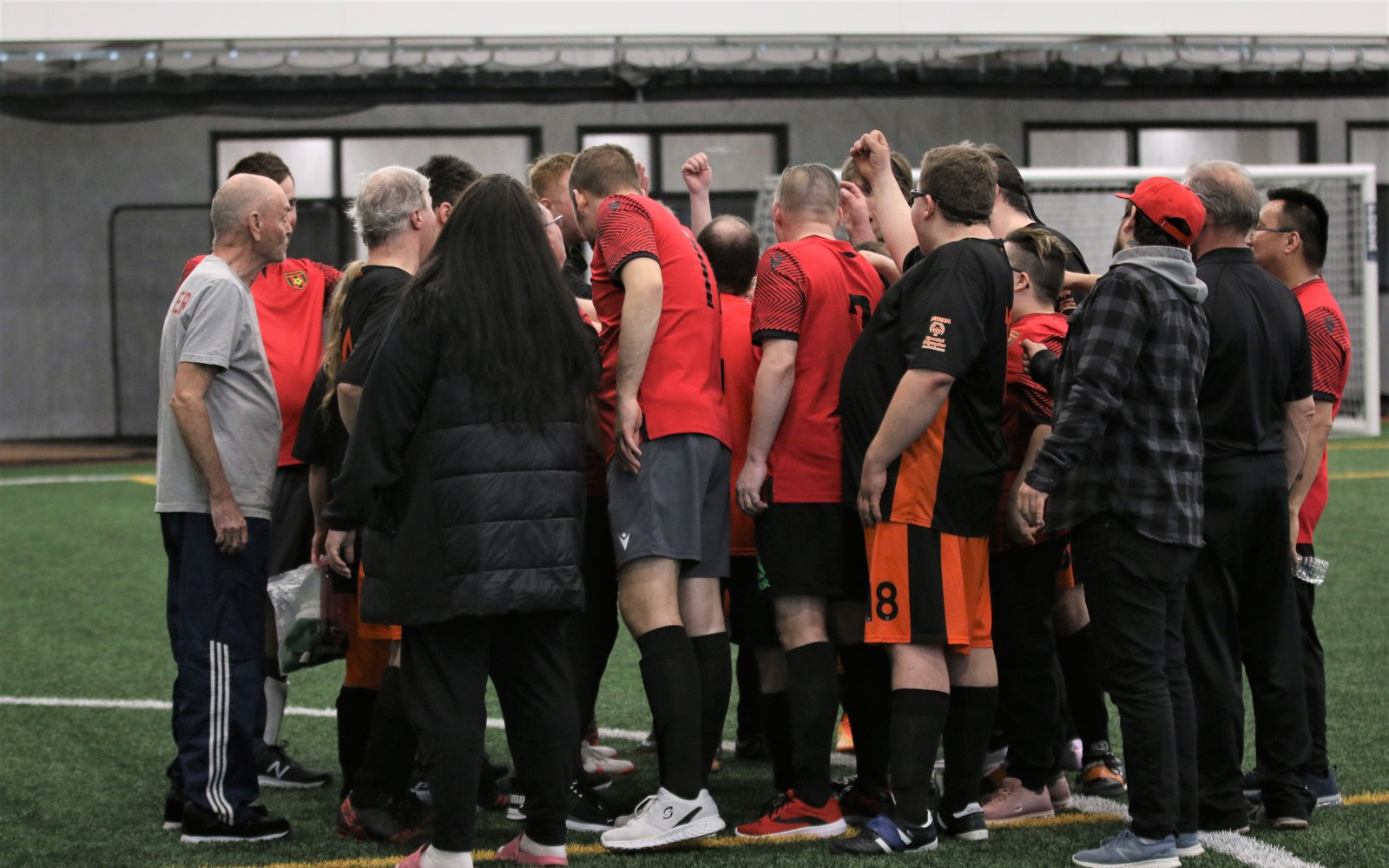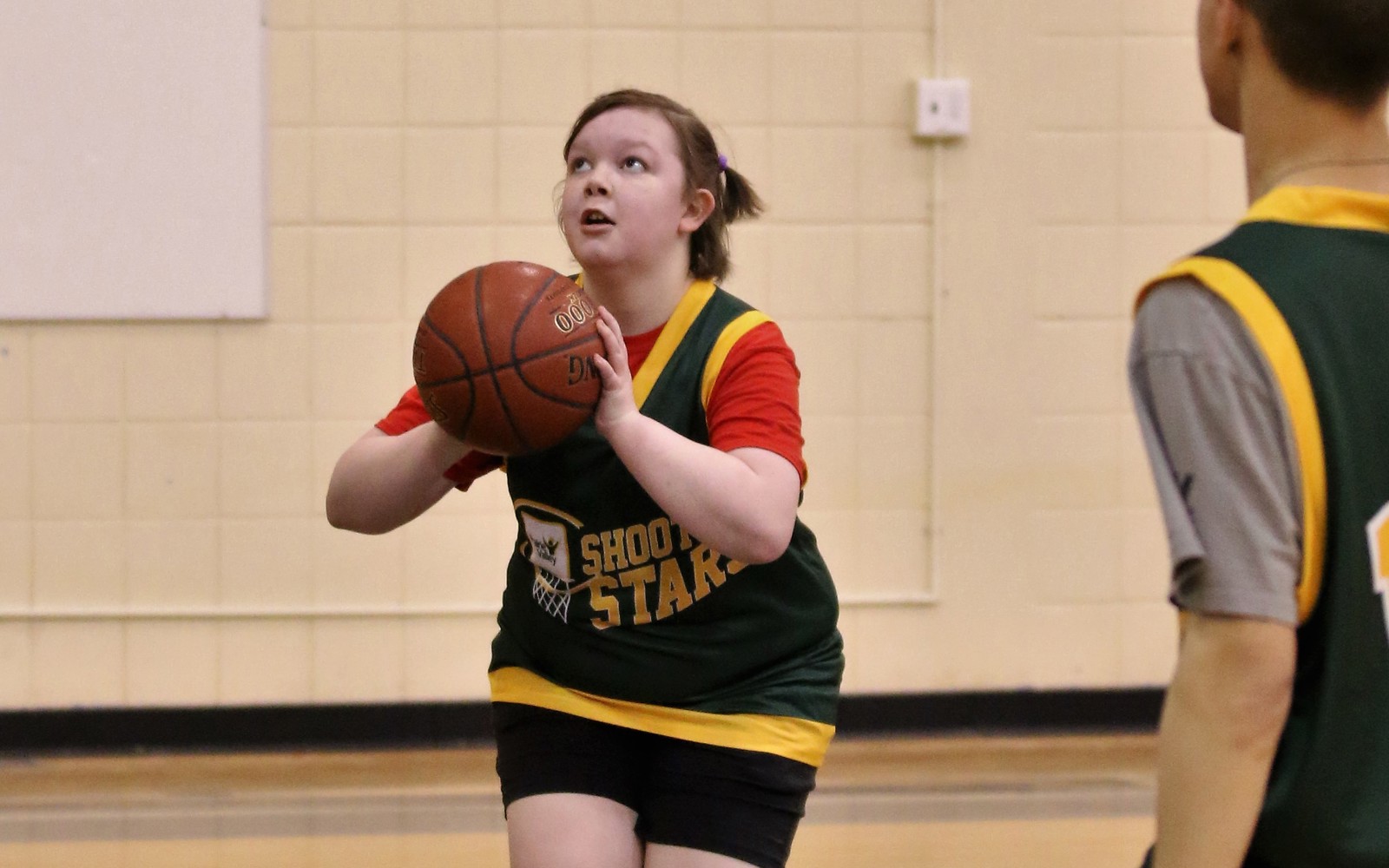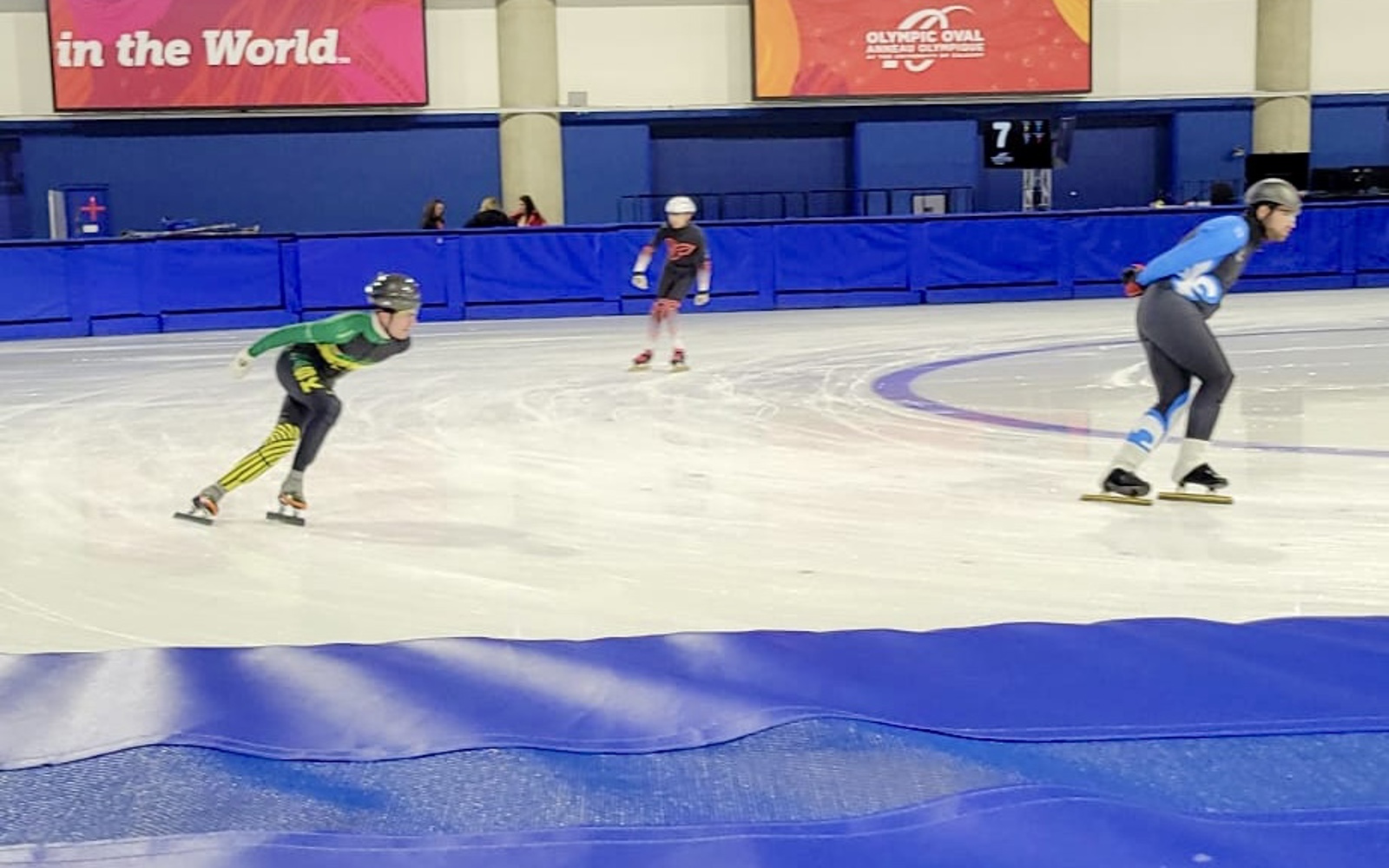Coaching Roles and Requirements
Coaching Roles
Becoming a coach with Special Olympics has many rewards, one of the main ones being working with such an amazing group of athletes. Our training programs and certification requirements are designed to ensure that our athletes receive the best care possible and to provide you with the tools to meet the needs of any athlete involved in our organization with confidence and skill.
Below are the duties and responsibilities for the head coach, assistant coach, and program volunteer positions within Special Olympics.
Head Coach:
- Ensure those involved with your programs are officially registered with SOS
- Orientate assistant coaches, program volunteers, and athletes to the program
- Evaluate the mental and physical skill levels of the athletes
- Adapt training and teaching techniques for athletes
- Provide equal training and competition opportunities for all athletes
- Ensure that practices consist of warm-up, motor skill development, sports skills and cool-down
- Be a good role model by exhibiting good sportsmanship
- Practices should emphasize individual skill development and progression should be carefully considered, and instructions simplified if needed
Assistant Coach:
- Assist athletes in developing sports skills
- Adapt training and teaching techniques to suit all athletes individually
- Hold basic first-aid knowledge
- Report emergencies to the head coach
- Attend available coaching clinics in your sport and National Coaching Certification Programs
- Be a good role model by exhibiting good sportsmanship
- Implement lesson plans developed by the head coach
- Assist with equipment set-up and organization of the practice site
** In order to be an assistant coach, you must be trained or certified in accordance with Special Olympic Saskatchewan coach training/certification guidelines. Please review the coaching requirements below.
Coaching Requirements

Respect in Sport
All volunteers, including coaches, are required to complete their Respect in Sport (RiS) certification. This online course provides an overview of the potential issues and circumstances that one may face while participating in any sports program, with a main focus on bullying and harassment. The RiS course assists coaches and volunteers with how to identify certain behaviours and what to do in a case where a situation may arise.
You can find more information on completing your RiS training by visiting:

Making Ethical Decisions
All volunteers taking on a coaching role, whether a head coach or assistant coach, must also complete their Making Ethical Decisions – Active for Life (MED) online evaluation. This training helps coaches identify the legal, ethical, and moral implications of difficult situations while equipping these coaches to handle such situations confidently.
You can find more information on completing your MED training by clicking:

Sport Specific Requirements
Special Olympics Canada (SOC) has a coach training course specific to Special Olympics coaches. The SOC – Competition Sport workshop is for coaches who are looking to work with athletes at various levels of domestic and international competitions. The main goal of this course is to prepare the coach for training with athletes at local, regional, provincial, and national competitions with a primary focus on safety, fun, fitness, fundamentals, performance, and basic sports skills.
For dates of upcoming SOC – Competition Sport Workshops in Saskatchewan, please visit our:
Head coaches and assistant coaches within Special Olympics will also be required to complete the NCCP Sport-Specific Training courses. Each sports-specific requirement is outlined in the table below. For dates and locations of any sport-specific courses, please get in touch with your sports Provincial Sport Governing Body (PSGB). Floor Hockey, Snowshoeing, and Powerlifting sport-specific workshops are organized and facilitated by Special Olympics Saskatchewan. For more information and to sign up for sport-specific seminars, please contact the Special Olympics Saskatchewan at sos@specialolympics.sk.ca at 306-780-9247.
Stay tuned for upcoming information from Special Olympics Canada on a bocce coaching course, a golf caddie course, and a peer mentorship program!
Please note that Respect in Sport, Making Ethical Decisions and SOC Competition Sport are all required to be a Special Olympics Saskatchewan coach or assistant coach.
Summer Sport Coach Requirements
| Sport | NCCP Sport Specific Course |
| 10 Pin Bowling | Community Sport Initiation |
| Aquatics | Fundamentals Coach (Swimming 101) |
| Athletics | Sport Coach (Competition) |
| Basketball | Learn to Train (Competition) |
| Bocce | 125 Coaching Hours |
| Golf | SOC PGA Golf Course |
| Power Lifting | SOC Powerlifting Coaches Module |
| Rhythmic Gymnastics | Gymnastics Foundations (Intro, Theory and Rhythmic) |
| Soccer | Soccer for Life |
| Softball | Community Sport Coach - ongoing participation |
Winter Sport Coach Requirement
| Sport | NCCP Sport Specific Course |
| Alpine Skiing | Entry Level Coach Workshop or CSIA Level I |
| Cross Country Skiing | Community Coach (Intro to Community Coaching & Community Coaching) |
| Curling | Club Coach |
| Figure Skating | CanSkate (Level 1 and 2) Primary STARskate (Level 3 and 6) |
| Floor Hockey | SOC Floor Hockey Module |
| Showshoe | SOC Snowshoe Coaches Module |
| Speed Skating |
Assistant Coach - FUNdamentals Leader Head coach - FUNdamentals Coach |
| 5 Pin Bowling | Community Coach |
